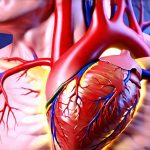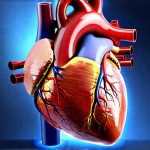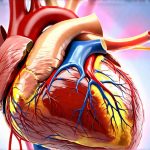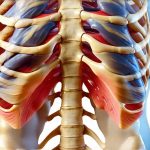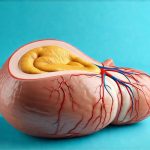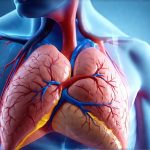Indigestion, a common experience for many, often presents as an uncomfortable feeling in the upper abdomen—bloating, fullness, nausea, even heartburn. But what’s less commonly understood is how easily these digestive symptoms can be mistaken for something far more serious, like chest pain associated with cardiac issues. The overlap in sensation and location between indigestion and heart problems causes significant anxiety for countless individuals, prompting unnecessary trips to the emergency room or a constant state of worry. It’s crucial to understand why this happens, not just to alleviate fear, but also to ensure appropriate medical attention when truly needed. This article will delve into the complex relationship between digestive discomfort and perceived chest pain, exploring the underlying mechanisms and key differentiating factors.
The human body doesn’t always deliver clear signals; it often speaks in a language of shared symptoms. The esophagus, stomach, and heart are all located relatively close to one another in the chest cavity, and they share some common nerve pathways. This anatomical proximity is a major reason why indigestion can “mimic” cardiac pain. Nerves from these organs converge at similar points before sending signals to the brain; therefore, irritation or discomfort in the digestive system can be misinterpreted as originating from the heart. Furthermore, anxiety itself—often heightened by experiencing any kind of chest discomfort—can exacerbate both digestive symptoms and the perception of pain, creating a vicious cycle. It’s a complex interplay between physical sensations, neurological interpretation, and emotional response. Understanding how even healthy diets can contribute to these issues is important too.
The Shared Anatomy & Neural Pathways
The key to understanding why indigestion feels like chest pain lies in appreciating the anatomy of the upper abdomen and thorax. The esophagus runs down through the chest, connecting the throat to the stomach. Just below the sternum (breastbone) sits the stomach, and further along is the duodenum – the first part of the small intestine. The heart, naturally, occupies a central position within this landscape. All these organs are in close proximity, meaning inflammation or pressure in one area can radiate outwards and be felt in others.
- The esophagus shares nerve pathways with both the heart and the stomach. Acid reflux or esophageal spasms can create sensations very similar to angina (chest pain due to reduced blood flow to the heart).
- The stomach, when experiencing significant gas, bloating, or muscle cramps, can press against the diaphragm—the muscle separating the chest from the abdomen—causing discomfort felt in the chest.
- The vagus nerve, a major cranial nerve, plays a role in both digestive and cardiovascular function. Stimulation of this nerve by gastrointestinal issues can sometimes be perceived as heart-related symptoms.
This anatomical closeness means that pain signals aren’t always precisely localized. The brain doesn’t necessarily know exactly where the discomfort is originating; it simply registers “chest pain.” This is why individuals often struggle to differentiate between the two, and why medical professionals need to carefully evaluate a patient’s symptoms before arriving at a diagnosis. The shared pathways are not a flaw, but a reflection of how interconnected our bodily systems truly are. If you’re experiencing discomfort after meals, consider testing that explains why some meals trigger discomfort.
The Role of Acid Reflux & Esophageal Spasms
Acid reflux, or gastroesophageal reflux disease (GERD), is one of the most common causes of indigestion and can frequently be mistaken for heart pain. This occurs when stomach acid flows back up into the esophagus, irritating its lining. This irritation often manifests as a burning sensation in the chest – heartburn – but it can also present as a dull ache or pressure that closely resembles angina. The location is often behind the breastbone, making it even more difficult to distinguish from cardiac pain.
Esophageal spasms are another culprit. These are sudden, forceful contractions of the esophageal muscles. While not always related to acid reflux, they can cause intense chest pain that mimics heart attack symptoms. Unlike heartburn, which tends to be a burning sensation, esophageal spasms often feel like a squeezing or crushing pressure in the chest. This similarity is understandably alarming and requires careful evaluation. Sometimes GERD and cold weather exacerbate these issues.
The crucial difference lies in what typically triggers these events. Cardiac pain is usually brought on by exertion or stress, while acid reflux or esophageal spasms are more likely to occur after eating, when lying down, or bending over. However, this isn’t always the case, making accurate diagnosis challenging. Recognizing your own patterns and triggers can be invaluable in understanding your symptoms and seeking appropriate care. It is also important to consider why chronic nasal congestion might contribute to these problems.
Differentiating Indigestion from Heart Pain
Accurately distinguishing between indigestion and heart pain is paramount, but it’s not always easy. Here are some key differences to consider:
- Nature of the Pain: Cardiac pain often feels like a squeezing, crushing, or heavy pressure in the chest. It may radiate to the left arm, jaw, neck, or back. Indigestion-related pain is more likely to be burning, aching, or gnawing.
- Triggers and Relief: Heart pain is frequently triggered by physical exertion or emotional stress and may not be immediately relieved by antacids. Indigestion is often related to eating specific foods, overeating, or lying down, and can be eased with antacids or dietary changes.
- Accompanying Symptoms: Cardiac pain may be accompanied by shortness of breath, sweating, dizziness, nausea, or a feeling of impending doom. Indigestion might cause bloating, gas, burping, or a sour taste in the mouth.
However, these are generalizations, and there’s significant overlap. If you’re experiencing chest discomfort, especially if it’s new, severe, or accompanied by any of the cardiac symptoms mentioned above, seek immediate medical attention. It is always better to be safe than sorry. Do not attempt to self-diagnose. Why GERD can make you feel like something is stuck in your throat may also contribute to anxiety.
When to Seek Medical Attention Immediately
While many instances of indigestion are harmless and can be managed with over-the-counter remedies, certain scenarios warrant a prompt visit to the emergency room or your doctor. These include:
- Severe chest pain that doesn’t subside after taking antacids.
- Chest pain accompanied by shortness of breath, sweating, dizziness, lightheadedness, or fainting.
- Pain radiating to the left arm, jaw, neck, or back.
- Sudden onset of intense chest pressure or a feeling of impending doom.
- Any new or worsening symptoms that are concerning to you.
Remember, medical professionals are equipped to quickly assess your condition and determine whether your chest discomfort is due to indigestion, heart problems, or another underlying issue. They may use tests like an electrocardiogram (ECG) to check your heart’s electrical activity or blood tests to look for markers of heart damage. Don’t hesitate to seek medical help if you are worried about your symptoms. You might also consider that why some smoothies trigger discomfort and others don’t could be related to ingredients.
Lifestyle Changes & Preventative Measures
Fortunately, many steps can be taken to minimize indigestion and reduce the likelihood of mistaking it for heart pain. These include:
- Dietary Adjustments: Avoid trigger foods (spicy, fatty, acidic), eat smaller, more frequent meals, and limit caffeine and alcohol intake.
- Lifestyle Modifications: Maintain a healthy weight, quit smoking, manage stress levels through techniques like yoga or meditation, and avoid lying down immediately after eating.
- Over-the-Counter Remedies: Antacids, H2 blockers, and proton pump inhibitors can help neutralize stomach acid and reduce heartburn. (Always consult with your doctor before taking any medication regularly).
- Regular Exercise: Physical activity can aid digestion and reduce stress.
By adopting these healthy habits, you can significantly improve your digestive health and minimize the risk of experiencing symptoms that could be misinterpreted as cardiac pain. However, remember that lifestyle changes are not a substitute for medical evaluation if you’re concerned about your chest discomfort. Also consider why late-night eating can lead to gas build-up.
Disclaimer: This article is intended for informational purposes only and does not constitute medical advice. Always consult with a qualified healthcare professional for any health concerns or before making any decisions related to your health or treatment.


